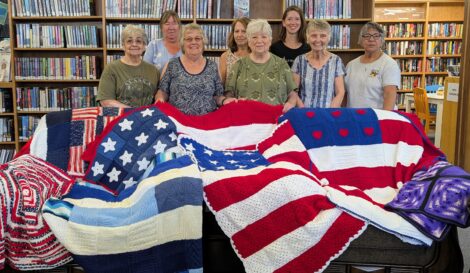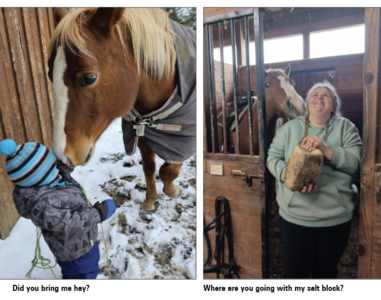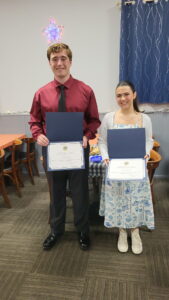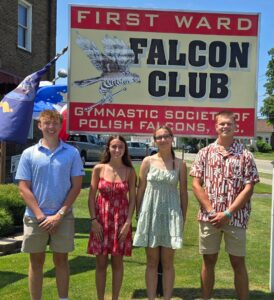There is a magic in sounds of yesterday
This essay is a more serious take on the sounds of summer, a topic I wrote about recently. It comes in response to friends who chimed in via Facebook with some precious memories from their past here in northern Chautauqua County. I feel obliged (happily) to share those memories and to recollect summers of my life at a time when the world was a bit quieter.
Don Stachowiak recalls “the evening bark” of neighborhood dogs participating in a “group chat.” Ned Divine remembers how his “Shep” used to sing in the “doggy choir” that really took off with the sirens of ambulances and police cars.
CKay Murphy waxes sentimental, remembering “crickets and cicadas” and the “distant wailing of trains” and the “whine of semis” on the then-new New York state Thruway during her childhood on Leon Street in Fredonia. Her “brief reverie” also summons the faint, distant drone of the Chautauqua County Fair on a warm July night. And Mary Cudney Bristol was quick to conjure up the memory of the old ice cream truck and its endless loop of tinkling bells. (Mr. Softy?)
In the village of Fredonia, I recall the sounds of tires on brick streets, especially when it rained, and the soft thud of a folded newspaper landing on the wood floor of a porch. There was the iron screeching of chain swings and the groaning whirr of the merry-go-round at Barker Street playground. And I can distinctly remember the sound of the cottonwood tree outside my bedroom window, its leaves clicking softly in the breeze, or swelling to a whoosh and roar as a storm approached.
In the early 70s, Barker Commons sounded the low-key “vroom” of Terry Honda’s pretend motorcycle. High school rock music blasted from the Hub and filled the east side of the Commons, while the soul and funk sounds from Hard Luck made the Caboose a prime live music venue during Fredonia State’s heyday.
We live in an area rich in water and all the natural sounds to which it gives life. The peepers in Sahloff’s pond crescendoed to a deafening volume. At the reservoir, I remember swimming (don’t tell anyone) with my friend Fritz Keller, who swam so gracefully and effortlessly and would blow water into the air like a humpback whale. And when staying overnight at my cousin Tommy Swetland’s house in Greencrest, there was the constant gentle lapping of the waves against the shore.
But water was/is not always so serene. My friend Tim Cudney and I heard the roar and fury of Canadaway Creek’s 100-year flood of 1979 when the waters climbed the banks like a pack of thieves and ravaged the downtown streets. And there was the sudden thunder and lightning storm on the beach in Greencrest that created a monstrous undertow and nearly drowned my younger sister (who was saved by a neighborhood kid named Peter Miller).
My friend John Mateszon, who dares to wield his mighty leaf blower even amid muted tombstones of the cemetery, alludes to the Ying Yang philosophy which holds that all things in life must have opposites: if there is darkness, there is also light. For there to be silence, there must be sound. (He probably would extend this to argue that the quietude of worms under the earth depends on the beeping and smashing of backhoes above.) But I suppose he’s right; it’s all relative, and the sounds of my quieter youth might have been quite disturbing to my grandfather’s generation.
We live in our own times. We have grown through changes, changes in the people we’ve known, in the environment in which we’ve lived, and even ourselves, who sometimes seem like strangers when we look back at them – familiar yet indistinct figures, like in a dream. They bear only a mild resemblance to what we have become.
I wonder if we are able to make these recollections simply because we had the time to listen – “down time,” yes, and maybe even “bored” time when there wasn’t anything to do because the weather was lousy or days were so long. We were able to take in the world around us, to store up memories that could be recalled and elaborated on like we are doing now.
While I can’t claim to know what generations Z and Alpha hear in the world around them, I would bet that it is of less importance to them than what comes via their devices. In the future, their only means of summoning up the past might be through videos.
Meanwhile, I’ll keep trying to re-conjure old images, such as that of a neighbor, Mrs. Lawson, at dusk, yodeling across the lawns to call home her autistic son: “Herrrrrberrrt!” I can still hear his monotonic humming as he heads home, his shadow switching beneath the streetlights.
Pete Howard, a musician, writer, teacher, and painter, lives in Dunkirk.





